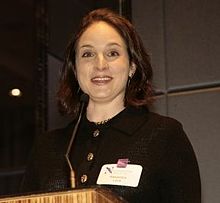

Alexandra Levit is an Author, Speaker, Consultant, Futurist, Influencer, and Expert in all things workplace; Partner with PeopleResults. has been researching and writing on the future of work for nearly a decade, and this fall will chart a course to 2035 in a book called “
Humanity Works: Merging People and Technologies for the Workforce of the Future“. In a nutshell, she says you don’t have to be afraid of the future because you are in the driver’s seat. If you embrace and invest in it today, your adaptability and willingness to take risks will be rewarded with more meaningful work and increased versatility to pursue that work, greater personal and professional freedom, and stronger organizational performance than you ever thought possible. That’s good news for remote working!
Here’s a synopsis of what she is predicting: By 2035, most organizations will not have large, company-sponsored physical offices but instead will lease chains of interconnected hubs for both full-time and contract employees to work and meet when they need to. This kind of flexibility will, however, have its downside. Thanks to the rise of the Rateocracy pioneered by websites like Yelp! customers will evaluate your products and services in real-time and will expect concerns to be addressed immediately.
We must also contend with unprecedented diversity. As of this year, there will be five generations in the workforce, led by many traditionalists (born before 1945) and baby boomers (born 1945-63) who are determined to contribute to their organizations beyond typical retirement age. Due to the small size of Generation X (born 1964-79), the millennials (born 1980-95) are moving into leadership positions an average of 10 years earlier than their predecessors and require extensive learning and mentorship to be effective managers.
The oldest members of Generation Z (born 1996-2012) are now graduating from college and arriving in the workforce expecting to wield technology for instant business impact. Organizations that want to keep top Gen Z talent must provide tools that allow them to do their jobs with maximum efficiency.
Members of all generations who wish to be gainfully employed will come face-to-face with a different set of hiring practices. For instance, your competition for jobs won’t simply be in your backyard but will be all over the world thanks to virtual and remote work and larger populations of working-aged people in China and India, which will shortly become the leading exporters of qualified talent.
In the work world of 2035, team work will be shorter-term in nature and involve high levels of human and machine collaboration. Constant innovation will be a given, meaning that if you want to keep pace with technology and use it to drive business results, you can’t wait for a vendor or consultant to hand you a solution. You must take development into your own hands.
The best and most successful companies and leaders will be those who focus on their best people, in all generations from all backgrounds, and with various work arrangements – and empower them with the right tools.
From my perspective – this sounds like “the more things change, the more they stay the same!” It also sounds like working from a remote location, like St Croix, is going to be more and more acceptable!
